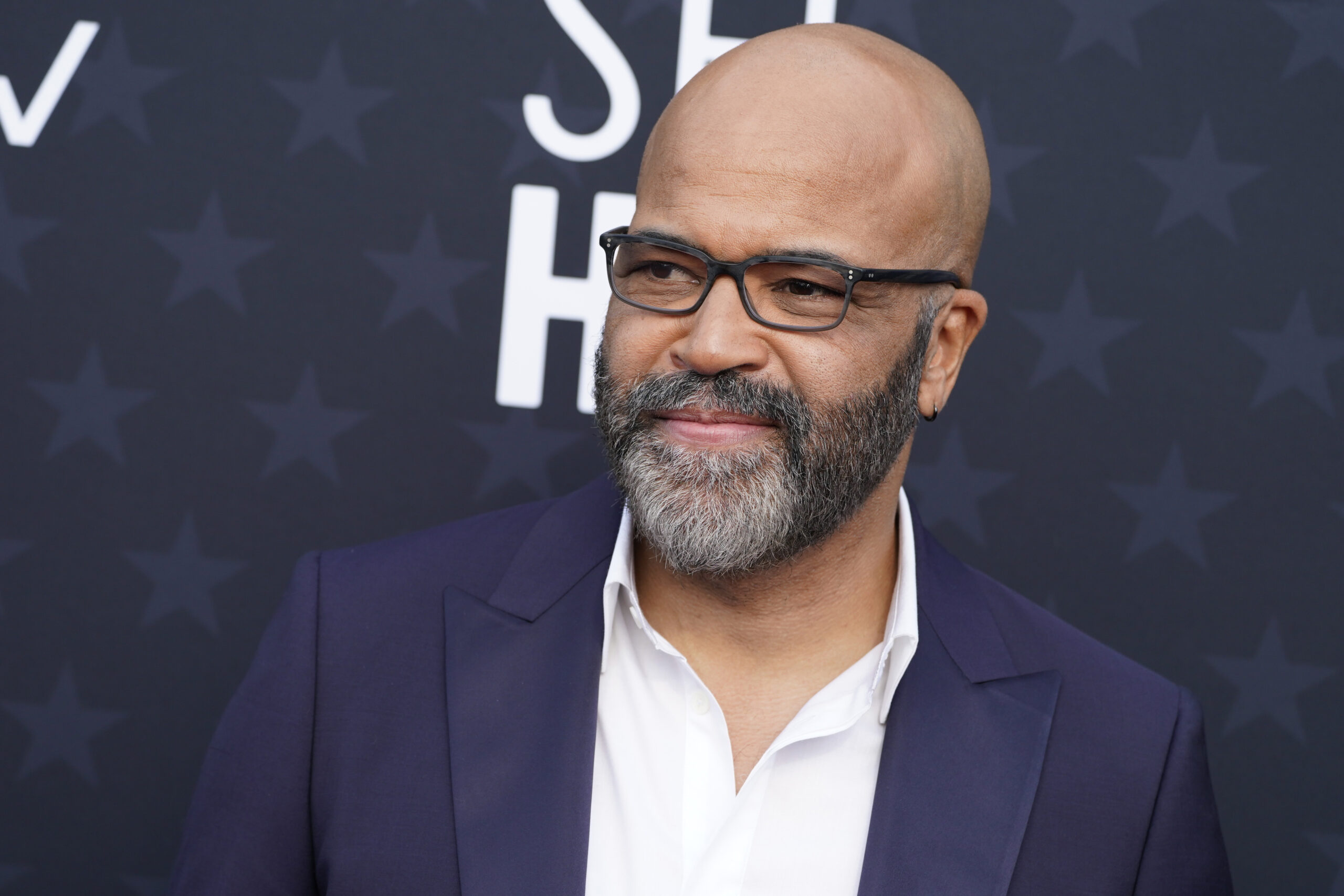Orion Pictures’ racial satire “American Fiction” leads the way as the Black-oriented film with the most Oscar nominations (five), including Best Picture, for the 96th annual Academy Awards, which will be presented March 10 at the Dolby Theatre in Los Angeles. “American Fiction” filmmaker Cord Jefferson and co-stars Jeffrey Wright and Sterling K. Brown were among the many Black actors who are first-time Oscar nominees for the ceremony.
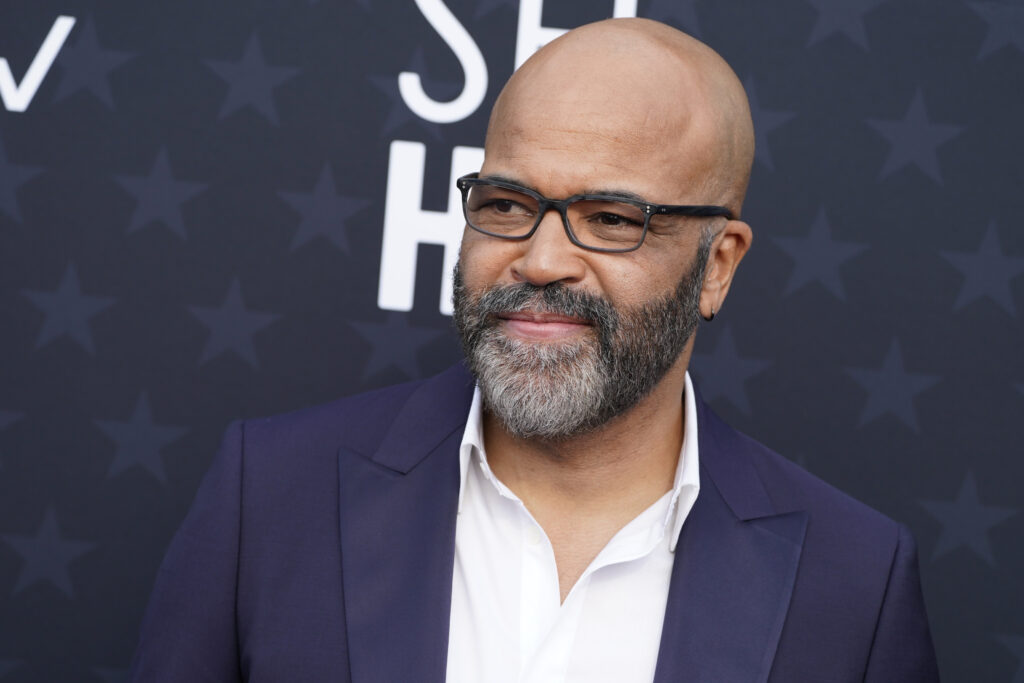
Other first-time Oscar nominees include Colman Domingo of the Netflix drama “Rustin,” Da’Vine Joy Randolph of the Focus Features drama “The Holdovers,” and Danielle Brooks of the Warner Bros. Pictures musical “The Color Purple.” ABC will air the U.S. telecast of the 2024 Oscar ceremony, which will be hosted by Jimmy Kimmel. The Universal Pictures biopic “Oppenheimer” (about atomic bomb inventor J. Robert Oppenheimer) has the most nominations (13) for the ceremony. The Academy Award nominations and winners are voted for by the Academy of Motion Picture Arts and Sciences, which has more than 10,500 members worldwide. The Academy does not release statistics on its number of Black members and instead publicly lists its members’ racial identities as “white” and “non-white.” According to a 2022 report by data company Statista, 81% of Academy members identify as white, and 19% identify as non-white.
“American Fiction,” which is based on Percival Everett’s 2001 novel “Erasure,” is about a literature professor named Thelonius “Monk” Ellison (played by Wright), who invents a persona of a fugitive criminal who’s written a novel that has negative racial stereotypes about Black people. When the book becomes a hit, Monk has to decide how much longer he can keep up the charade. Wright is Oscar-nominated for Best Actor in a Leading Role. Brown portrays Monk’s younger brother, Clifford “Cliff” Ellison, a plastic surgeon whose wife divorced him when she found out that he is gay. Brown’s Oscar nomination is for Best Actor in a Supporting Role.
“American Fiction” is the first movie from Emmy-winning “Watchmen” screenwriter Jefferson, who is one of the “American Fiction” producers nominated for Best Picture. Jefferson, who wrote and directed “American Fiction,” is also nominated for Best Adapted Screenplay. In addition, “American Fiction” composer Laura Karpman (who is white) is nominated for Best Original Score, for the jazz-oriented music that she wrote for the film. This is Karpman’s first Oscar nomination.
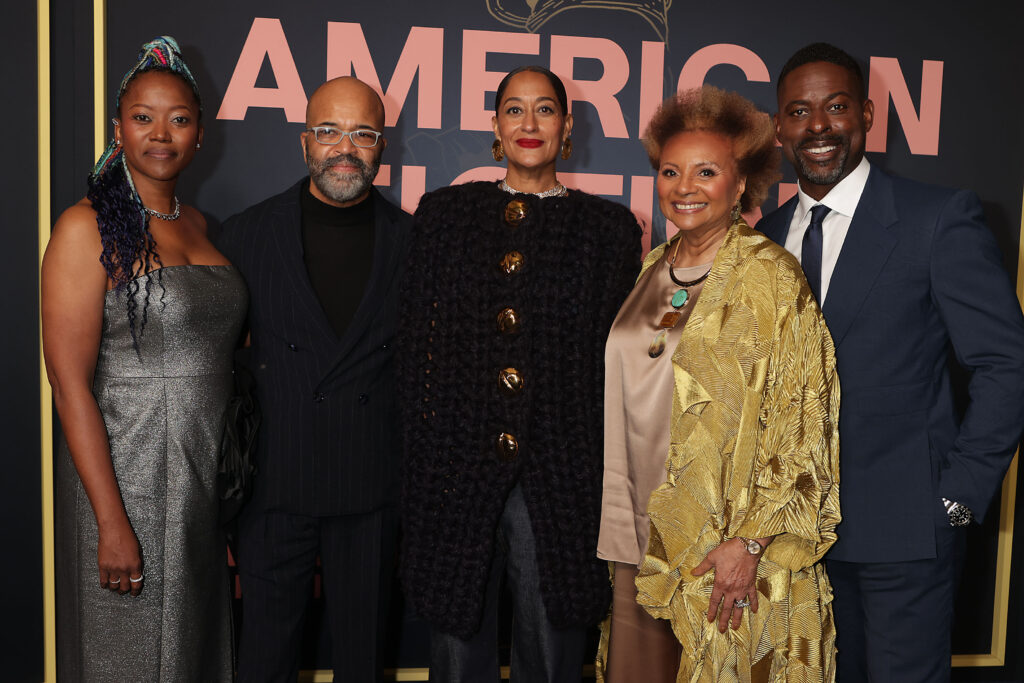
Meanwhile, “The Color Purple” (the 2023 movie version of the stage musical) and “Rustin” received one nomination each. Brooks, who portrays feisty Sofia Butler Johnson in “The Color Purple,” is nominated for Best Actress in a Supporting Role. Brooks received a Tony nomination in 2016, for the same role in the Broadway revival of “The Color Purple.”
Domingo, who portrays civil rights activist Bayard Rustin in the biopic “Rustin,” is nominated for Best Actor in a Leading Role. Rustin, who was a gay man and an ally of Dr. Martin Luther King Jr., is credited with being a driving force for the historic 1963 March on Washington. With this nomination, Domingo is the first openly gay Afro-Latino to get an Oscar nod for acting.
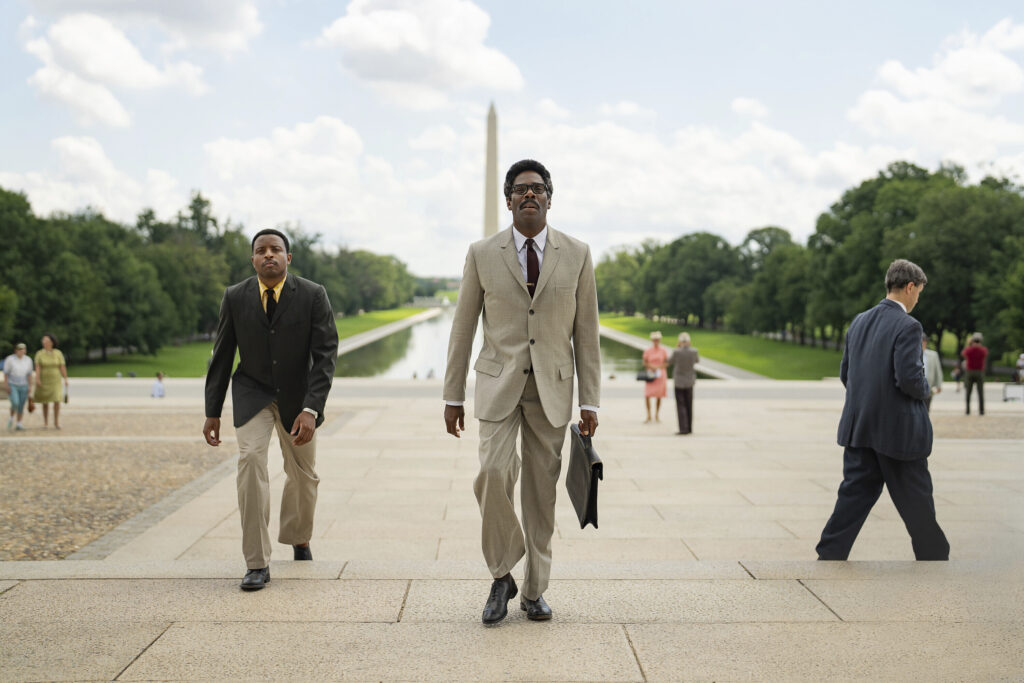
Randolph has been winning numerous prizes for “The Holdovers,” including a Golden Globe Award and Critics Choice Award. In “The Holdovers,” which is set in the early 1970s, Randolph portrays the sassy but compassionate Mary Lamb, the chief cook at an elite boarding school in the Boston area. Mary is grieving over the death of her military son in the Vietnam War, and she is one of the few of the school’s employees who has to work at the school during the Christmas holiday break.
There are 15 Black people nominated for Oscars in 2024, compared to eight Black people in 2023. Domingo of “Rustin,” Randolph of “The Holdovers,” and Brooks of “The Color Purple” are among the Black people nominated in actor/actress categories.
“American Fiction” is the movie with the most Black nominees: Jefferson, Wright, Brown, and producer Jermaine Johnson, who is one of the four “American Fiction” producers nominated for Best Picture. This is also Johnson’s first Oscar nomination.
Kemp Powers, one of the directors of Sony Pictures Animation/Columbia Pictures’ “Spider-Man: Across the Spider-Verse,” is nominated for Best Animated Feature for this superhero sequel. Powers previously received an Oscar nomination for Best Adapted Screenplay, for the Amazon Studios 2020 drama “One Night in Miami…,” which was the feature-film directorial debut of Regina King.
Moses Bwayo, co-director of National Geographic Films’ “Bobi Wine: The People’s President,” is nominated for Best Documentary Feature. It’s his first Oscar nomination. “Bobi Wine: The People’s President” chronicles the 2021 Ugandan presidential campaign of pop singer-turned-activist Bobi Wine. Bwayo shares the Oscar nomination with co-director/producer Christopher Sharp and producer John Battsek, who are both white.
Grammy-winning artist Jon Batiste is nominated for Best Original Song, for co-writing “It Never Went Away,” for the Netflix documentary “American Symphony.” Batist shares the nomination with white co-writer Dan Wilson. Batiste and his writer wife, Suleika Jaouad, star in the documentary, which chronicles the couple’s life in 2022, when Batiste was writing a symphony and winning awards at the same time that Jaouad’s leukemia returned. Batiste has received numerous accolades, including a Grammy and an Oscar, for being one of the composers of Pixar’s 2020 animated film “Soul.”
Kris Bowers, another acclaimed Black composer, has been getting Oscar recognition as a director of short films. He is one of the directors of “The Last Repair Shop” (from The Los Angeles Times and Searchlight Pictures), which is nominated for Best Documentary Short Film. “The Last Repair Shop” is a profile of a workshop in Los Angeles that repairs musical instruments for the Los Angeles Unified School District. Bowers’ previous Oscar nomination was in the same category, for 2021’s “A Concerto Is a Conversation.” Bowers and Ben Proudfoot (who is white) co-directed both movies.
Christine Turner, co-director of The New Yorker’s “The Barber of Little Rock,” is nominated for Best Documentary Short Film. It’s her first Oscar nomination. “The Barber of Little Rock” is about Arlo Washington—a Black barber in Little Rock, Arkansas—who founded a community bank to combat racism in banking. Turner shares the Oscar nomination with white co-director John Hoffman.
Misan Harriman (who is Nigerian British) is another first-time Oscar nominee. As the director of Netflix’s “The After,” Harriman is nominated for Best Live Action Short Film. “The After” is a drama starring David Oyelowo as a rideshare driver who confronts his grief after witnessing a violent crime.
In technical categories, Black nominees are audio engineer Willie Burton of “Oppenheimer” (nominated for Best Sound) and visual effects on-set supervisor Andrew Roberts of the 20th Century Studios sci-fi film “The Creator” (nominated for Best Visual Effects).
The most noticeable Oscar snubs for Black movies were for the 2023 version of “The Color Purple” (directed by Blitz Bazawule), which got passed over for Best Picture, while star Fantasia Barrino (who has the role of Celie) was shut out for Best Actress in a Leading Role, even though both have been nominated in these categories at other awards shows. It’s unknown if the behind-the-scenes controversy for “The Color Purple” (including co-star Taraji P. Henson’s claims that she was underpaid and cast members were not given proper work accommodations) affected the movie’s chances of getting more Oscar nominations.
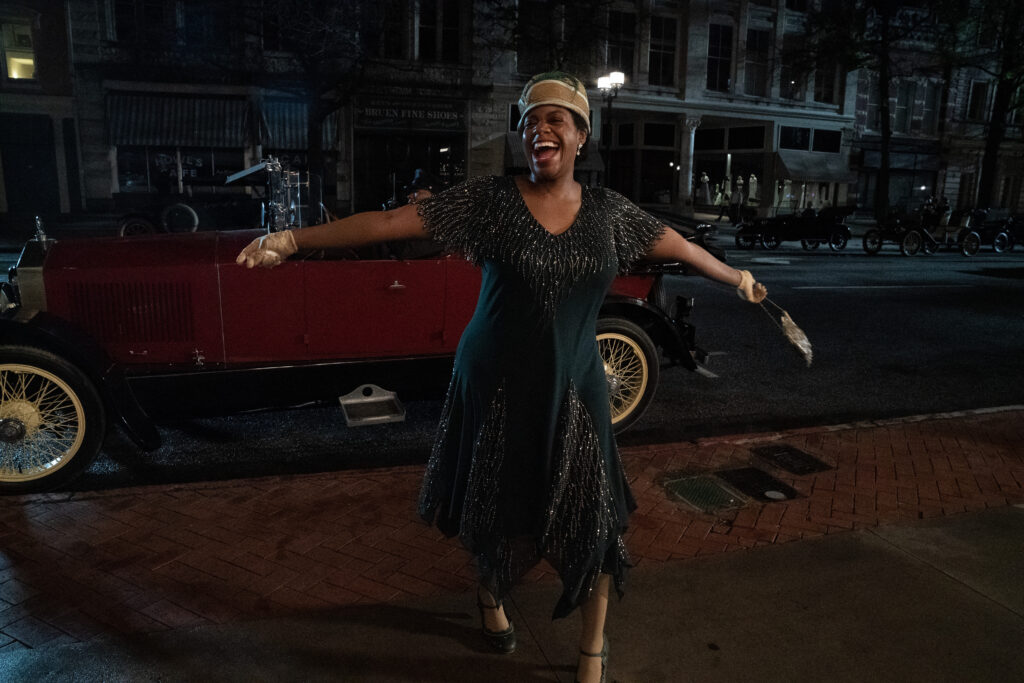
Oprah Winfrey, Quincy Jones, Steven Spielberg, and Scott Sanders are the producers of the movie musical version of “The Color Purple.” Spielberg directed the 1985 drama version of “The Color Purple,” which is based on Alice Walker’s Pulitzer Prize-winning 1982 novel. Spielberg’s “The Color Purple” received 11 Oscar nominations (including nods for Best Picture and co-stars Whoopi Goldberg, Winfrey, and Margaret Avery), but ultimately didn’t win any Oscars.
Except for “The Barber of Little Rock,” the 2024 Academy Awards have snubbed movies directed or co-directed by Black women. Among the acclaimed movies directed or co-directed by Black women that didn’t get Oscar nominations are the Neon drama “Origin,” directed by Ava DuVernay; the Focus Features drama “A Thousand and One,” directed by A.V. Rockwell; and the HBO documentary “Going to Mars: The Nikki Giovanni Project,” co-directed by Michèle Stephenson and Joe Brewster. “A Thousand and One” and “Going to Mars: The Nikki Giovanni Project” won prizes at the 2023 Sundance Film Festival. Magnolia Pictures documentaries “Kokomo City” (directed by D. Smith) and “Little Richard: I Am Everything” (directed by Lisa Cortés) didn’t make the Academy’s shortlist for Best Documentary Feature, and therefore couldn’t be nominated for an Oscar in that category.
The Oscar nominations for the ceremony were announced Tuesday by actress Zazie Beetz and actor Jack Quaid during ABC’s “Good Morning America.” Some of the nominees gave immediate reactions to ABC News.
“This is recognition of a lot of work that’s gone into this, and nobody who’s recognized has done this alone,” said “American Fiction” star Wright. “There are so many people who have gifted me with their talents to allow my work to grow, so it’s pretty cool to be acknowledged for that.”
“The Color Purple” co-star Brooks weighed in too.
“As a young girl, someone who just graduated Juilliard, just needing money to get on the train to get to an audition for regional theater, I never would have imagined a few years later I would be Oscar-nominated,” Brooks commented. “This is amazing.”
“Rustin” star Domingo said, “I’m overwhelmed in the most extraordinary way.”A complete list of nominees for the 2024 Academy Awards can be found on the official website.

